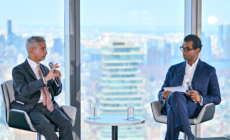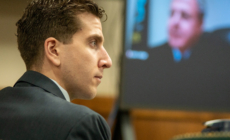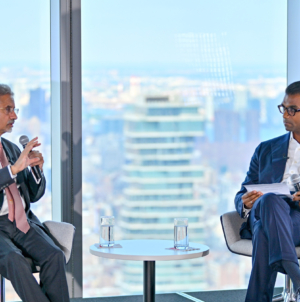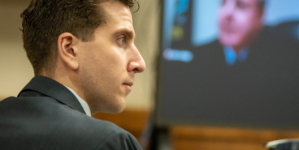-
Exclusive — India Hopes for Imminent US Trade Deal, Minister Tells Newsweek - 24 mins ago
-
Appeals Court Weighs Trump’s Use of Alien Enemies Act for Deportations - 26 mins ago
-
Trump freezes $6.8 billion in education funding; California hit hard - 34 mins ago
-
Bryan Kohberger Plea Deal Sparks Wave of Reaction Online - 59 mins ago
-
NYC Panel Approves Rent Increases, a Key Issue for Mamdani and Adams - about 1 hour ago
-
Newsom pushes major housing reform through California Legislature - about 1 hour ago
-
Packers Linked to Potential TJ Watt Trade Amid New Rumors - 2 hours ago
-
Idaho Shooting Suspect Identified in Deadly Ambush of Firefighters - 2 hours ago
-
Two brothers went missing three weeks ago. They were found dead along a California highway - 2 hours ago
-
Report: Knicks Expected to Make Major Free Agency Signing - 2 hours ago
Judge Weighs DOGE Officials’ Testimony in Peter Marocco Case
A judge is set to decide whether Peter Marocco and other officials must give live testimony in a case deciding whether Marocco had the authority to fire a government official.
Why It Matters
Marocco, a Trump administration appointee, is a senior official in Elon Musk’s Department of Government Efficiency (DOGE) and has worked as the deputy head of the U.S. Agency for International Development (USAID).
In this role, Marocco and DOGE oversaw the cutting of 83 percent of USAID contracts, with the remaining programs folded into the State Department. Marocco was also involved in taking over the U.S. African Development Foundation (USADF), resulting in its chair, Ward Brehm, losing his job. Brehm is suing Marocco and other DOGE officials over the decision.

Grace McDowell/Daily News via AP
What To Know
Brehm’s lawyers are calling for DOGE officials, including Marocco, to give live testimony in the case, but Marocco’s lawyers are arguing against this.
In an April 14 court filing, lawyer Joel McElvain said Marocco had a “lack of candor” in his declarations to the court and should therefore give live testimony.
“Marocco’s first and second declarations do not comply with this Court’s instruction that the Defendants must explain ‘in detail’ the steps that they are taking to ensure that USADF remain in compliance with its statutory obligations,” McElvain said.
The court filing continued, “Given the inaccuracies in Marocco’s declarations, and Defendants’ failure to comply with this Court’s directives, it is appropriate for this Court to establish procedures for the April 16 testimony of Defendants’ witnesses.”
In a response filed the same day, John Bardo, a lawyer representing Marocco, argued that the request should be denied because it violated a rule requiring a request to be made 72 hours before the hearing and “because the type of testimony the Plaintiff seeks to obtain is not relevant to the legal question before the Court.”
Bardo wrote: “In short, Plaintiff’s motion should be denied because any testimony that the Court orders would not assist the Court in deciding the narrow question before it—namely, whether the former Board members who purported to appoint Brehm president of the Foundation had the authority to make that appointment or whether Marocco, designated by President Trump to act as Chair of the Foundation Board had the authority to remove Brehm.”
What Happens Next
The judge has yet to make a decision on whether Marocco and other officials need to give live testimony.
Source link


















